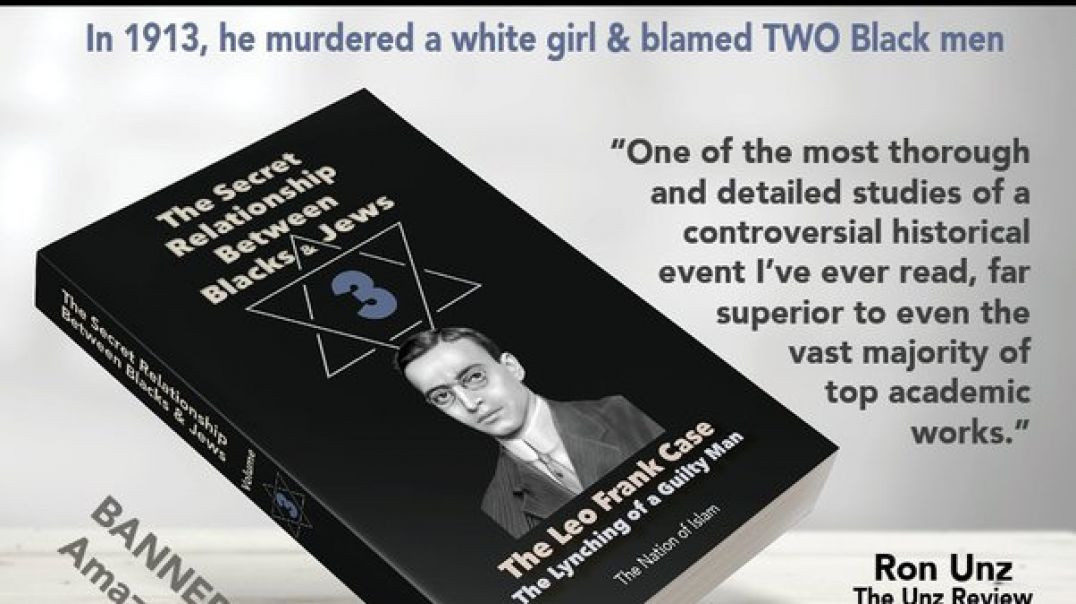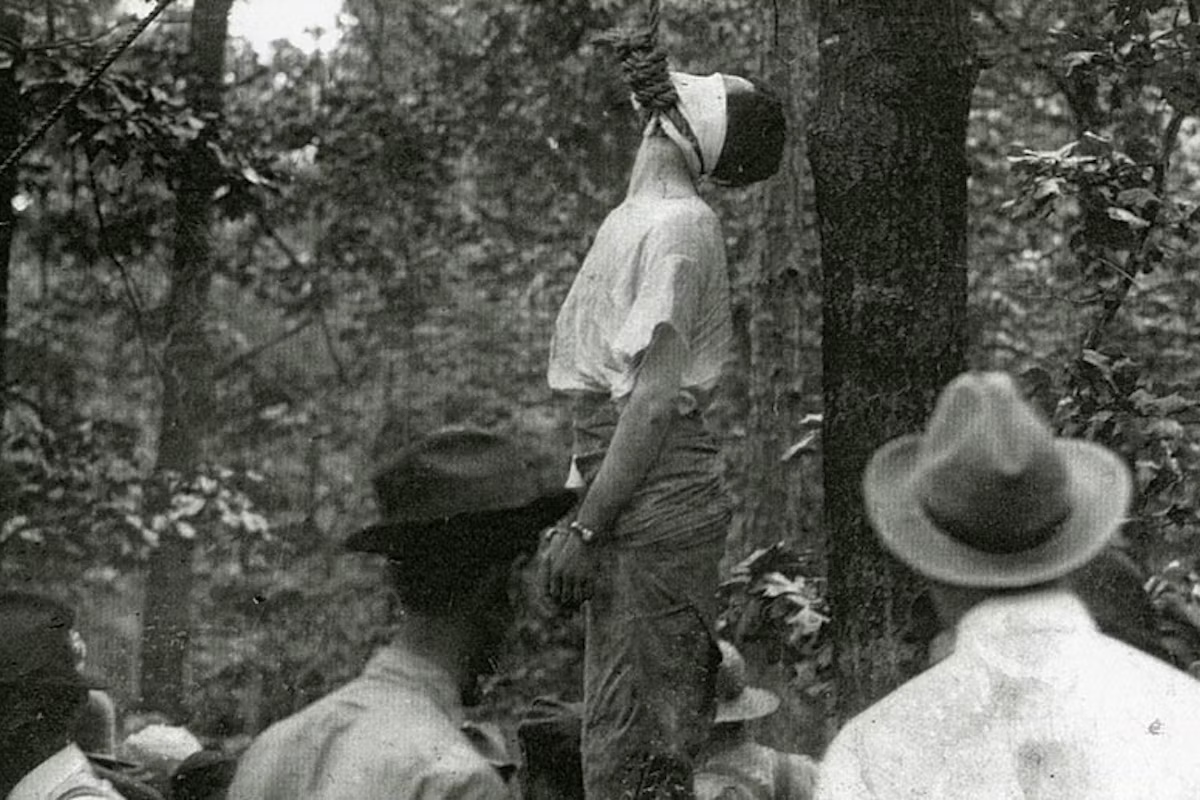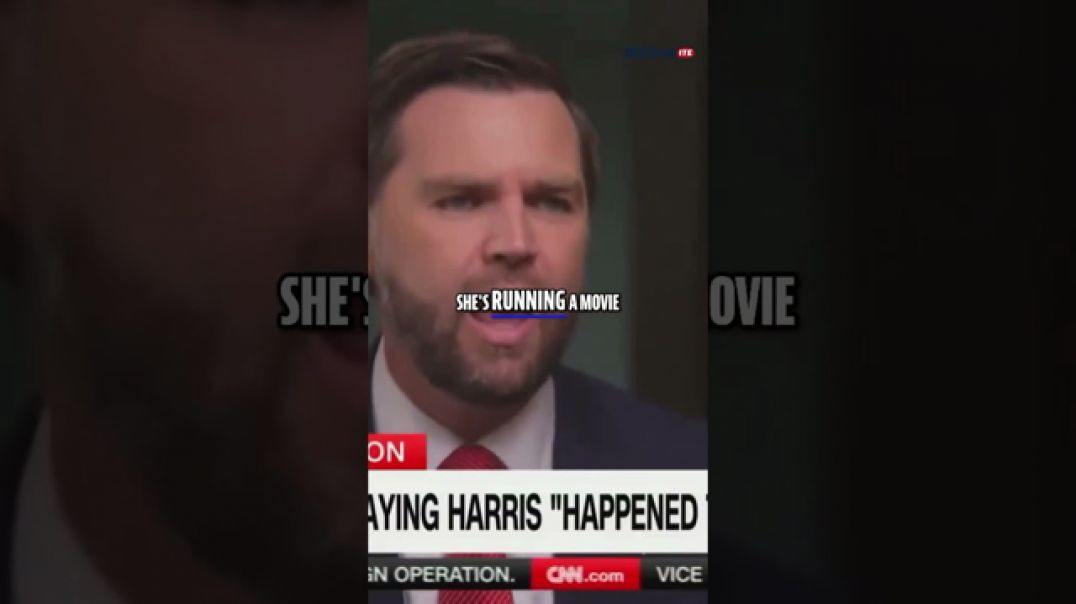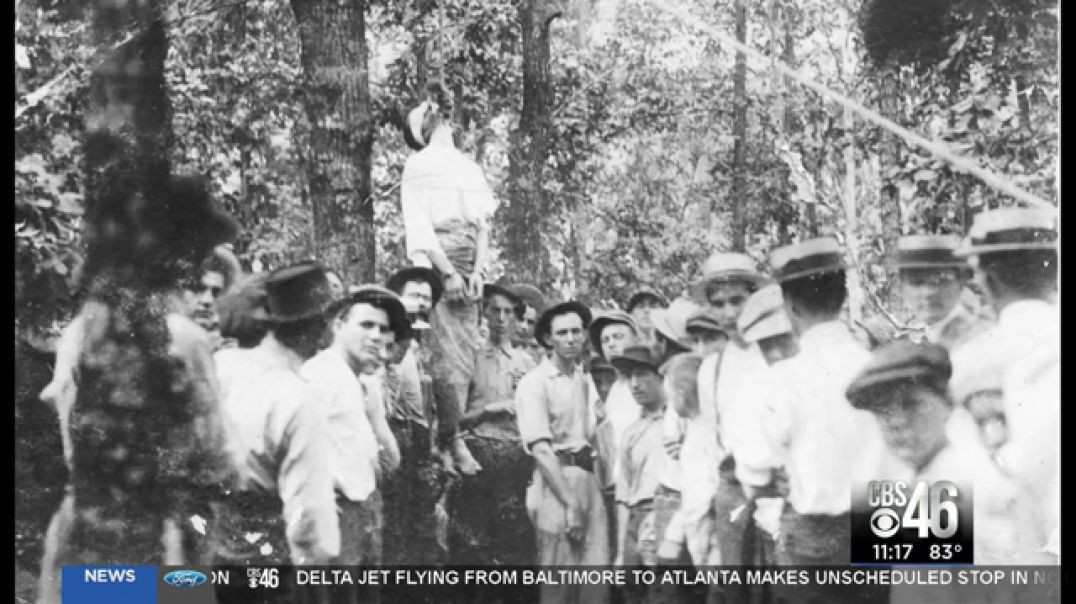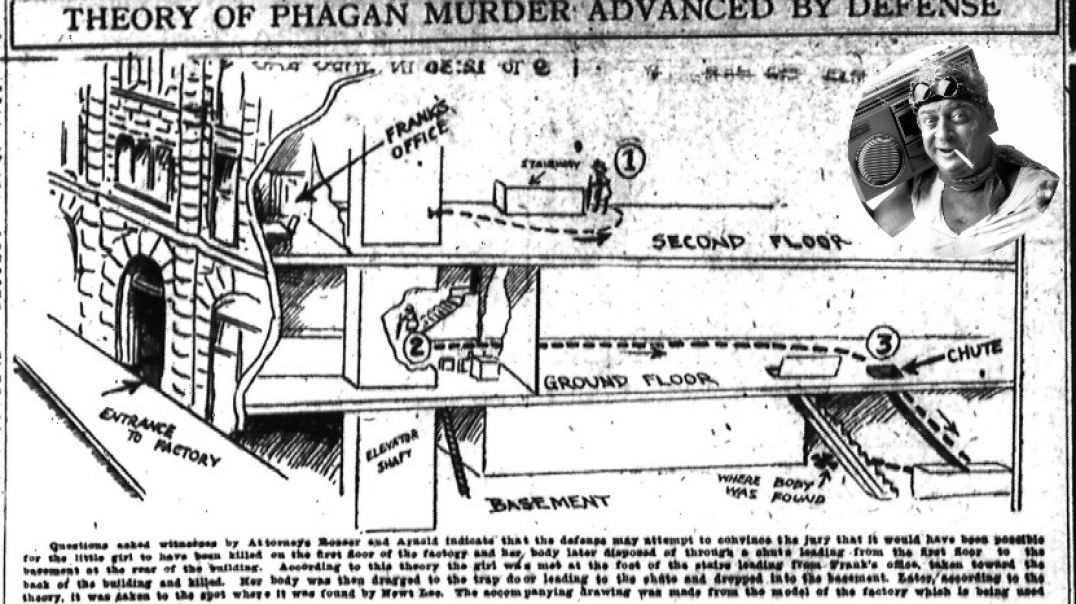Live streaming on Altcast.TV is now available!
#kmprising
Source: https://www.bitchute.com/video/CUsZbDJaia68/
Thumbnail: https://www.quora.com/How-do-B....lack-Americans-feel-
Before we get to this choice piece of hasbara, Observer7 posted this comment to Jim's channel:
To this day the jews have still not got over the shock of one of their leading jews, Leo Frank, being tried, sentenced to death, and hanged, for the rape and murder of a 13 year old child, Mary Phagan
I also posit that 'Lucille Selig' was a transvestite of some sort; still researching
How do Black Americans feel about the Leo Frank incident?
Thomas Crowne
Screenwriter · Author has 9.4K answers and 9.1M answer views · 2y
I, as a black American, feel like Leo Frank was wrongly convicted for a crime he didn't commit. The judge who presided over the case was one of the dozens of people who wrote to Governor Joh Slaton asking that Frank's death sentence be commuted to life imprisonment.
That means that Frank was going to spend the rest of his life in jail for a crime, that many people at that time thought he didn't commit, and that the majority of people who've studied the case today are convinced he didn't commit.
"There is near unanimity around the idea that Frank was most certainly innocent of the crime of murdering Mary Phagan."
Keep in mind, he wasn't being released or pardoned, he just wasn't being executed.
And yet, that wasn't satisfactory to a bunch of racists who thought that Frank's Jewish supporters had bribed him out of an execution, as the following statement makes clear:
"The anti-Semitic feeling was the natural result of the belief that the Jews had banded to free Frank, innocent or guilty. The supposed solidarity of the Jews for Frank, even if he was guilty, caused a Gentile solidarity against him."
Eight cars, with 28 white men in them, drove to the prison where Frank was being held. They broke in, tied up the warden, snatched Frank out of his cell with no resistance from white corrections officers, and hung him from a tree. Crowds of white men, women, and children showed up in cars, on horses, and under their own steam to came to gawk at his body.
After people stopped cutting off pieces of his clothing for keepsakes Frank was cut down, and to insure that his family couldn't give him an open casket funeral, his murderers stomped on his face until he was nearly unrecognizable.
If that wasn't bad enough, photographs were taken of the lynching, and were used as postcards in local stores for 25 cents. They also sold pieces of the rope, his clothes, and the fucking branches from the tree.
And not one of those white men saw the inside of a cell. A local reporter said that “the will of the people was the will of God.”
"What it did to Southern Jews can't be discounted ... It drove them into a state of denial about their Judaism. They became even more assimilated, anti-Israel, Episcopalian. The Temple did away with chupas at weddings – anything that would draw attention."
All of the above is a fucking horror story. From being sentenced to die for a crime he almost certainly didn't commit, to being lynched because of some bullshit racist conspiracy theory, to the desecration of his corpse.
And with all of that in mind, what happened to Frank was happening to blacks all over the fucking place. Except some of them didn't even get the benefit of a bullshit trial. Most of them didn't merit an article in the paper. No one gave a fuck. All they got was do not pass go, do not collect any justice and advance straight to a noose. Or a beating. Or a shooting.
But that's America. If you are labeled as other, your life has lesser value. It was true then and it's true now.
w e w...what a cuck faggit
LEO MAX FRANK WAS A PIECE OF GARBAGE MASQUERADING AS A PRINCIPLED INDIVIDUAL, AND AS LONG AS I DRAW BREATH, HE SHALL NEVER BE KNOWN AS ANYTHING BUT UTTER FILTH
#kmprising 🇺🇸🔥⚖
From the data banks of VfB [source located! https://odysee.com/@Duncan_Onz....og:c/Pardoning-PEdO- 🫡
Thumbnail: https://newrepublic.com/articl....e/122542/distant-mir
https://www.georgiaencyclopedi....a.org/articles/histo
Just the flawed conclusion:
Conclusion
The Frank case not only was a miscarriage of justice but also symbolized many of the South’s fears at that time. Workers resented being exploited by northern factory owners who had come south to reorganize a declining agrarian economy. Frank’s Jewish identity compounded southern resentment toward him, as latent anti-Semitic sentiments, inflamed by Tom Watson, became more pronounced. Editorials and commentaries in newspapers all over the United States supporting a new trial for Frank and/or claiming his innocence reinforced the beliefs of many outraged Georgians, who saw in them the attempt of Jews to use their money and influence to undermine justice.
Frank’s trial had far-reaching impacts. It struck fear in Jewish southerners, causing them to monitor their behavior in the region closely for the next fifty years—until the civil rights movement led to more significant changes. But it also inspired the formation of the Anti-Defamation League, one of the nation’s foremost civil rights organizations.
In 1986 the Georgia State Board of Pardons and Paroles pardoned Frank, stating:
Without attempting to address the question of guilt or innocence, and in recognition of the State’s failure to protect the person of Leo M. Frank and thereby preserve his opportunity for continued legal appeal of his conviction, and in recognition of the State’s failure to bring his killers to justice, and as an effort to heal old wounds, the State Board of Pardons and Paroles, in compliance with its Constitutional and statutory authority, hereby grants to Leo M. Frank a Pardon.
The pardon was motivated in part by the 1982 testimony of eighty-three-year-old Alonzo Mann, who as an office boy had seen Jim Conley carrying Mary Phagan’s body to the basement on the day of her death. Conley had threatened to kill Mann if he said anything, and the boy’s mother advised him to keep silent. For those who thought Frank innocent, this provided confirmation; for those who believed him guilty, this was insufficient evidence to change their views.
The case inspired several scholarly treatments by historians and also made its way, through various media, into the popular culture. In 1915 Georgia musician Fiddlin’ John Carson wrote a ballad about Mary Phagan, which he performed on the steps of the state capitol to protest the commutation of Frank’s sentence. Ten years later the song was recorded as “Little Mary Phagan” by Moonshine Kate, Carson’s daughter, and around the same time Carson recorded a related song, “The Grave of Little Mary Phagan.”
Other popular interpretations of the case include the film They Won’t Forget (1937), based on Ward Greene’s fictionalized account Death in the Deep South (1936), with Lana Turner playing the victim in her first credited screen role; the television mini-series The Murder of Mary Phagan (1988), starring Jack Lemmon as Governor John Slaton; two novels—Richard Kluger’s Members of the Tribe (1977), a detailed reconstruction of the case, but set in Savannah rather than Atlanta, and David Mamet’s The Old Religion (1997), in which a fictionalized Frank tells his story in the first person; and Atlanta playwright Alfred Uhry’s Broadway musical Parade (1999), the title a reference to both the Confederate Memorial Day parade that brought Mary Phagan to town and the lynch mob that took Frank from Milledgeville to Marietta.
In 2008 the William Breman Jewish Heritage Museum in Atlanta opened a special exhibition entitled Seeking Justice: The Leo Frank Case Revisited, and in 2009 an episode of the PBS series American Experience entitled “The People v. Leo Frank” premiered in Atlanta, where the program was also filmed.
#kmprising 🔥
https://www.nytimes.com/2022/0....6/28/world/europe/ex
We all can see the War Jews versus Hollywood Jews kerfuffle that's captured our election process...VfB contends this is a BAIT AND SWITCH, using legalese to disguise the flim-flam
THERE EXISTS NO TRUE REASON TO INVEST A SINGLE CENT IN A SINGLE ELECTION
VfB isn't going to tell you anything revolutionary...just selah:
All of our election infrastructure was designed to be self-perpetuating; what happened was that FREEMASONRY was able to isolate and replace key personages in infrastructure, causing the formerly self-perpetuating process to now be siphoned from, and add in the vagaries of racketeering, and you now have a broken infrastructure - VfB asks, simply, TO WHOM are these funds going?
99% of crimes can be solved by determining WHO BENEIFTS
Before VfB forgets - today should be a national holiday #kmprising 🇺🇲🔥
CNN anchor Dana Bash bluntly asked Trump running mate Sen. JD Vance (R-OH) “Do you believe Kamala Harris is Black?” amid former President Donald Trump’s racial attacks on Vice President Kamala Harris.
Vance made the rounds of the Sunday shows this week, including Sunday morning’s edition of CNN’s State of the Union, during which Bash pressed him about Trump’s continued attacks on the VP over her race.
Welcome to Mediaite, THE site for news and opinion on the intersection of media and politics. Join Mediaite+ https://www.mediaite.com/subscribe/
►Subscribe to Mediaite: https://bit.ly/3MjuECB
► Website: https://www.mediaite.com/
► Instagram: https://www.instagram.com/mediaite/
► X (Twitter): https://twitter.com/mediaite
► Threads: https://www.threads.net/@mediaite
► Facebook: https://www.facebook.com/mediaite
Source: https://youtube.com/watch?v=RZBHlCRPNSU
LAND2LOVE - Well that’s interesting. 🤔 He goes deep in on AIPAC. Back to its founding and reviews every publicly available archive document. It’s everything we already knew and more.
AIPAC's founding was based on the justifiable hanging of therapist and murderer Leo Max Frank; they were hanging Blacks like Christmas ornaments, but all of a sudden, hanging's a bad thing - imagine my shock 🫣
#kmprising 🔥 The Knights of Mary Phagan will NEVER allow a full pardon for that piece of murdering scum
Source: https://twitter.com/LAND2LOVE/....status/1770088475561
Thumbnail: http://www.quickmeme.com/p/3vst0l
https://theintercept.com/2023/....11/18/aipac-congress
https://www.haaretz.com/us-new....s/2023-12-06/ty-arti
https://forward.com/news/58024....8/donations-aipac-ha
https://www.haaretz.com/us-new....s/2024-02-28/ty-arti
https://www.opensecrets.org/industries/summary?cycle=All&ind=Q05&recipdetail=S
Today should be a national holiday 📆
Jim Conley was instructed by Leo Frank to write those notes; obviously, Leo wasn't covering for Jim - he tried throwing him under a steamroller
It looks like the scumbags are trying to effect a full pardon for the child rapist and murderer, Leo Max Frank
Not while VfB draws breath, will that occur 🥸
He wasn't the first, and he's far from the last; recall Levi Aron, the Butcher of Brooklyn 🪓
Source: https://blogs.weta.org/2015/08/13/leo-frank-case
Thumbnail: https://blogs.weta.org/2015/08/13/leo-frank-case
The Leo Frank Case
The case of Leo Frank had tremendous long-lasting impact on the nation -- leading to the creation of the Anti-Defamation League and reviving the KKK
#kmprising 🇺🇲🔥.
This is an excerpt from the mockumentary THE PEOPLE ⚖ (& FRANKENFOOT) VS. LEO MAX FRANK [ol' Leo tried pulling a bait and switch in implicating his accomplice in cover-up Jim Conley for the rape and murder of little Mary Phagan, but ended up dancing the air jig - thanks to the KNIGHTS OF MARY PHAGAN #kmprising 🔥]
https://old.bitchute.com/video/BzWFjSGMtOum/
Its unplanned sequel is titled: FRANKENFOOT THEATRE EPISODE 27 🍕🧒😋💀 I'LL HAVE A SLICE OF LEIBY, PLEASE [Levi Aron, the Butcher of Brooklyn, kidnapped, drugged, raped, murdered, AND PARTIALLY ATE 8 year old Leiby Kletsky, his neighbor, in Williamsburg
https://old.bitchute.com/video/1TJn7nq8NDah/
Thumbnail: [thanks to https://leofrank.info/tag/jim-conley/ 🖲]
